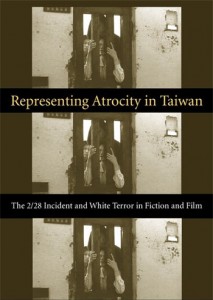Representing Atrocity in Taiwan
The 2/28 Incident and White Terror in Fiction and Film (livre en anglais)


Moyenne des votes : ![]()
| 0 | vote | |
| 0 | vote | |
| 0 | vote | |
| 0 | vote |
Votre vote : -
Description de l'ouvrage :
In 1945, Taiwan was placed under the administrative control of the Republic of China, and after two years, accusations of corruption and a failing economy sparked a local protest that was brutally quashed by the Kuomintang government. The February Twenty-Eighth (or 2/28) Incident led to four decades of martial law that became known as the White Terror. During this period, talk of 2/28 was forbidden and all dissent violently suppressed, but since the lifting of martial law in 1987, this long-buried history has been revisited through commemoration and narrative, cinema and remembrance.
Drawing on a wealth of secondary theoretical material as well as her own original research, Sylvia Li-chun Lin conducts a close analysis of the political, narrative, and ideological structures involved in the fictional and cinematic representations of the 2/28 Incident and White Terror. She assesses the role of individual and collective memory and institutionalized forgetting, while underscoring the dangers of re-creating a historical past and the risks of trivialization. She also compares her findings with scholarly works on the Holocaust and the aftermath of the atomic bombings of Japan, questioning the politics of forming public and personal memories and the political teleology of "closure." This is the first book to be published in English on the 2/28 Incident and White Terror and offers a valuable matrix of comparison for studying the portrayal of atrocity in a specific locale.
À propos de l'auteur :
Sylvia Li-chun Lin is the Notre Dame Assistant Professor of Chinese at the University of Notre Dame. Her research interests include Republican culture and literary journals, language and identity in Taiwan, and commemoration of atrocity.
Revue de Presse :
The result is a complicated and neglected topic managed economically and lucidly in a volume that will surely intervene in Chinese cultural studies but also will prove attractive to anyone concerned with the overarching issue of atrocity and the literary and cinematic representation of the 'disappeared.' The Rocky Mountain Review
Voir le site internet de l'éditeur Columbia University Press
> Sur un thème proche :
Mapping Taiwanese Cinema, 2008-20 (2024)
Environments, Poetics, Practice
Taiwan Cinema as Soft Power (2022)
Authorship, Transnationality, Historiography
Taiwan Cinema (2019)
International Reception and Social Change
Dir. Kuei-fen Chiu, Ming-yeh Rawnsley et Gary Rawnsley
Film Production and Consumption in Contemporary Taiwan (2016)
Cinema as a Sensory Circuit
de Ya-Feng Mon
Translingual Narration (2015)
Colonial and Postcolonial Taiwanese Fiction and Film
New Taiwanese Cinema in Focus (2014)
Moving Within and Beyond the Frame